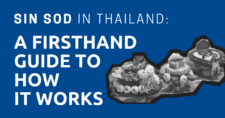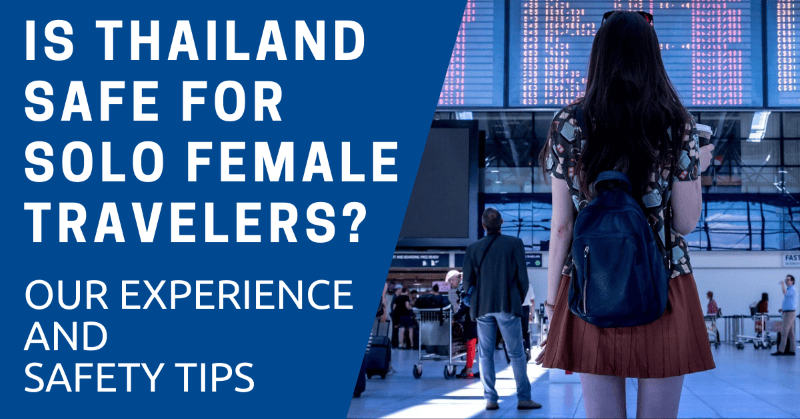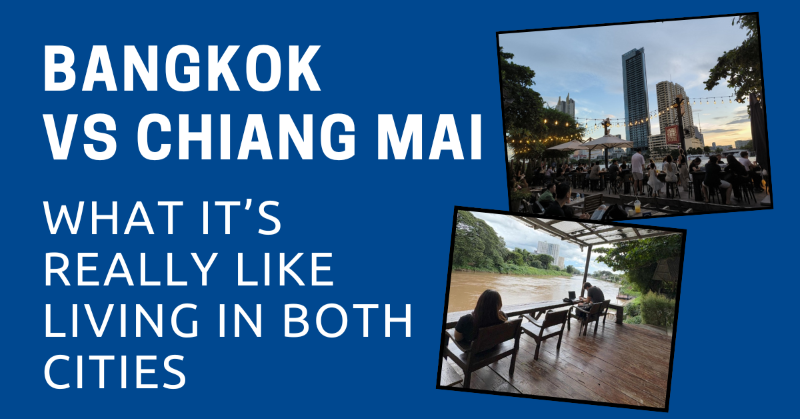
Bangkok or Chiang Mai? Discover how these two Thai cities compare in cost, lifestyle, jobs, and expat living from someone who’s lived in both.
After eight years in Bangkok, I packed up and moved to Chiang Mai for work. I thought I knew Thailand well enough to expect what life up north would be like, but living here has surprised me in ways both big and small.
Bangkok and Chiang Mai are by far the two most popular cities for expats, digital nomads, and retirees. Both have great food, affordable housing, and warm communities. But the lifestyle, atmosphere, and even the way you move through daily life are very different. This article isn’t just a checklist, it’s my story, my comparisons, and the kind of real advice I wish I’d had before deciding to make the switch.
This guide is based on years of living in Bangkok, followed by a recent move to Chiang Mai, combined with input from fellow expats and reliable local sources. If you’re deciding between these two cities in 2025, here’s what you really need to know.
"*" indicates required fields
Disclaimer: This article may include links to products or services offered by ExpatDen's partners, which give us commissions when you click on them. Although this may influence how they appear in the text, we only recommend solutions that we would use in your situation. Read more in our Advertising Disclosure.
Contents
- Key Takeaways
- Overview of Each City
- Lifestyle and Atmosphere
- Bureaucratic Convenience
- Cost of Living
- Healthcare and Hospitals
- Services for Expats
- Education for Families
- Work and Business Opportunities
- Transportation and Mobility
- Culture and Community
- Where to Live in Chiang Mai
- Safety and Quality of Life
- Things to Do
- Pros and Cons
- Which City Should You Choose?
- FAQs
- Which One Is Better: Chiang Mai or Bangkok?
(And How It’s Costing Them)
Most expats throw money away, get lost in red tape, and miss the local hacks that make life easier and cheaper. ExpatDen Premium gives you the secrets seasoned expats use to save, earn, and thrive beyond the basics, saving you thousands and opening doors you didn’t even know existed.
Here’s what’s inside:
- Housing Hacks: Slash your rent by 40% or more - because the locals are laughing at what you’re paying.
- Banking Mastery: Stop wasting on fees and get top exchange rates. Why give your money away?
- Healthcare for Local Prices: Quality treatment without the expat price tag.
- Visa and Legal Shortcuts: No more bureaucratic nightmares. Get the visa and residency secrets that others pay their lawyer dearly for.
- Deep Discounts: Find the savings locals rely on for groceries, dining, and more.
If you’re serious about making Thailand work for you, join ExpatDen Premium and make Thailand work for you.
Key Takeaways
- Bangkok is fast-paced and full of energy, with endless nightlife and dining options. Chiang Mai offers a slower, more community-oriented lifestyle surrounded by nature.
- Chiang Mai is 30–50% cheaper than Bangkok. Rent, dining, and entertainment are noticeably more affordable, while groceries and imported goods cost about the same.
- Bangkok is better for corporate and professional careers, while Chiang Mai attracts digital nomads, freelancers, and retirees seeking balance and lower costs.
- Bangkok’s BTS and MRT make car-free living easy. Chiang Mai has no metro system. Most residents rely on scooters or cars.
- Chiang Mai’s immigration offices are friendlier and faster, with less red tape compared to Bangkok’s Chaengwattana.
- Bangkok has more world-class hospitals and specialists. Chiang Mai offers good medical care for routine needs, with top private hospitals like Bangkok Hospital Chiang Mai and Chiang Mai Ram.
- Bangkok has more international schools with global curricula and higher fees. Chiang Mai’s schools are smaller, greener, and more affordable.
- Bangkok’s expat scene is large and diverse but can feel impersonal. Chiang Mai has a tighter-knit expat community, especially among families and remote workers.
Overview of Each City
When I lived in Bangkok, it felt like the center of the universe. It’s the capital, home to over 10 million people, and one of Asia’s busiest hubs, with skyscrapers, the BTS Skytrain, the MRT, no need for a car, endless malls, rooftop bars, embassies, and restaurants that never close. If I wanted Greek food at midnight, I could probably find it.
Chiang Mai in the north, is the cultural heart of the country and it feels like a big town with deep history. It’s smaller, surrounded by mountains, with the moat and old city walls right in the middle. Life is slower. People seem less in a rush. On a clear day, I can actually see mountains in every direction, a daily reminder I’m not in Bangkok anymore.
It’s more popular with families, retirees, and digital nomads looking for affordable housing and a community-focused lifestyle.
Learn More:
- How to Become a Digital Nomad in Chiang Mai
- How to Retire in Chiang Mai: Cost, Visas, Lifestyle, and More (2025)
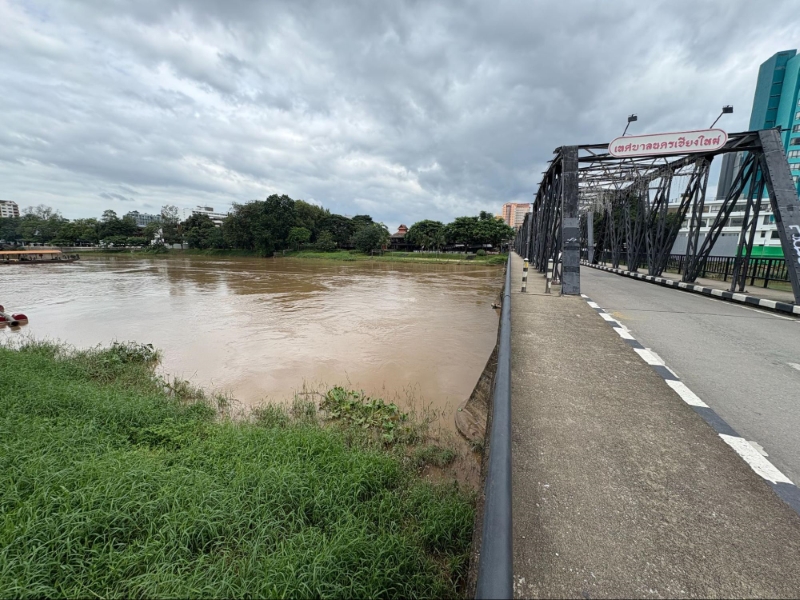
Lifestyle and Atmosphere
Bangkok life for me was always about movement: finishing work and getting out of there as fast as possible to hop on the back of a bike and head straight to a new restaurant or a bar opening, or a friend’s live music event, or a women’s networking happy hour.
It was fun, but it was constant. No weekend popped up without a dozen options for things to do, invitations, and plans. Always another party or another meal on the horizon.
In Chiang Mai, the vibe is calmer. I was ready to make friends at my new job with about 80 new foreigners stuck with me Monday to Friday in a confined space. I thought I would easily find a social circle. But I was kind of shocked to slowly learn that everyone here keeps to themselves.
Many of them have families with more than one child. Many of them just go home every day after work, cook dinner, chill and stay in. Many people do physical stuff like long distance bicycle rides or hiking, on the weekends, but after-work beers or dinner just isn’t really a thing here so much. I know some colleagues get out to the bars together every now and then, but it’s not an everyday occurrence like the Bangkok lifestyle.
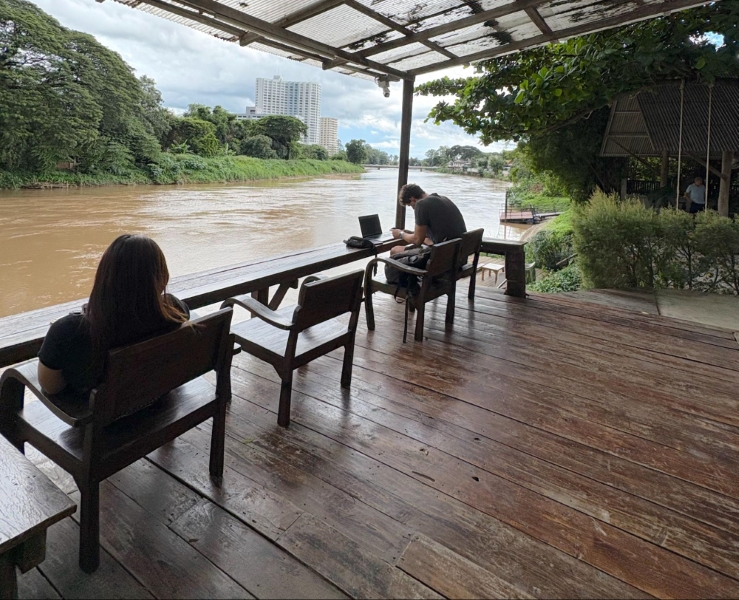
People in Chiang Mai seem to do more healthy stuff outside of work: hiking clubs, biking groups, yoga classes, art fairs, even regular discussions. I myself love an adventure like a long motorcycle ride, a drive to a waterfall, even the occasional hiking tour to discover some new parts of Thailand. But people in Chiang Mai are way more into wellness than I am and I really miss some of my friends and our regular wine fueled dinners.
If Bangkok is a rush of lights and possibilities, Chiang Mai is a slower, greener life where weekends are about hiking, markets, and community events.
Bureaucratic Convenience
Every expat in Bangkok knows the true test of patience isn’t traffic, pollution, or even the rainy season, it’s immigration day. Those soul-crushing hours in line at Chaengwattana for your 90-day report, the annual visa renewal marathon, or, heaven forbid, switching visa types. We’ve all got our horror stories of 13-hour days lost inside that cold, echoing building of bureaucracy, listening to robotic voices call number after number, never yours, never fast enough. Many of us eventually cave, handing over thousands of baht to an agent just to make it stop.
So imagine my absolute shock when I moved to Chiang Mai and my new employer casually handed me a stack of paperwork and said, “Just pop over to immigration and sort your visa yourself.” Excuse me? A clueless little farang like me, navigating the maze without an agent or an HR representative? Who was supposed to show up at 6 a.m. to secure my golden queue number?
I braced for the worst, and then, plot twist. I walked into this tiny, almost charming immigration office by the airport, handed over my forms, and walked out an hour later with a shiny new Non-B stamp in my passport. No drama, no waiting, no tears. The officer even smiled and gave me a polite wai.
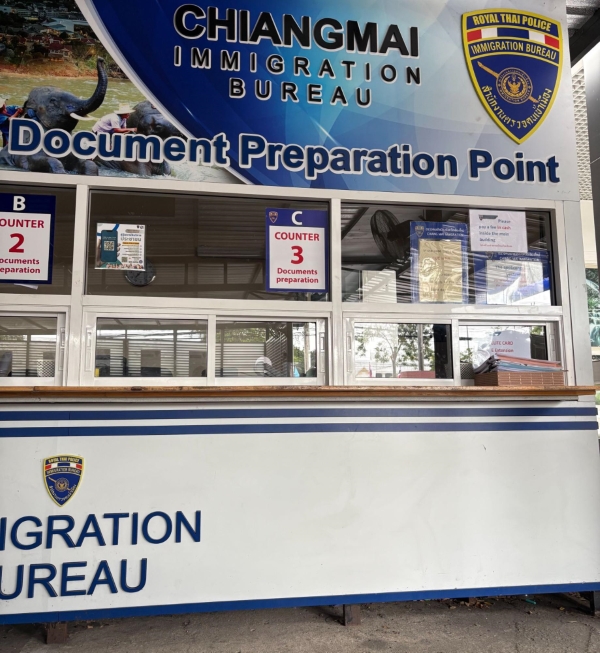
It’s a simple truth: immigration in Chiang Mai is just better. More forgiving, faster, friendlier, and way less stressful than the Bangkok nightmare we’ve all endured. They even have a drive-thru window for your 90-day report, yes, you heard that right. You roll up, hand over your passport, and you’re done in minutes.
There are two immigration offices to choose from here: one conveniently located by the airport (just a quick 15 min trip from town) and another inside Central Festival Mall. Honestly, it’s one of those rare bureaucratic perks that makes seasoned expats breathe a deep, grateful sigh of relief and wonder why they ever put up with Bangkok’s chaos for so long.
Cost of Living
This is where I felt the biggest difference.
In Bangkok, a one-bedroom condo on Sukhumvit can go for up to THB25,000. Here in Chiang Mai, I have a two-story townhouse with three bathrooms, a parking space, and access to a pool for THB13,000. My friends from Bangkok come up to visit and can’t believe the space I have.
Food is cheaper too. Western meals, pizza, pasta, steak, cost on average 30% less here than in Bangkok.
We can compare Cluck – Chiang Mai’s boutique southern fried chicken place to Fowlmouth in Bangkok, their menus are very similar and I think the Chiang Mai version is better, the same hot fried chicken burger is 240 at Cluck and 320 at Fowlmouth.
Another easy comparison is Dinky’s Texas BBQ in Chiang Mai and Smokin’ Pug in Bangkok. Here in CNX a juicy brisket sandwich will set you back THB375, in BKK that similar menu item costs 495. A massive half rack of ribs here is 445, in Bangkok it’s 675.
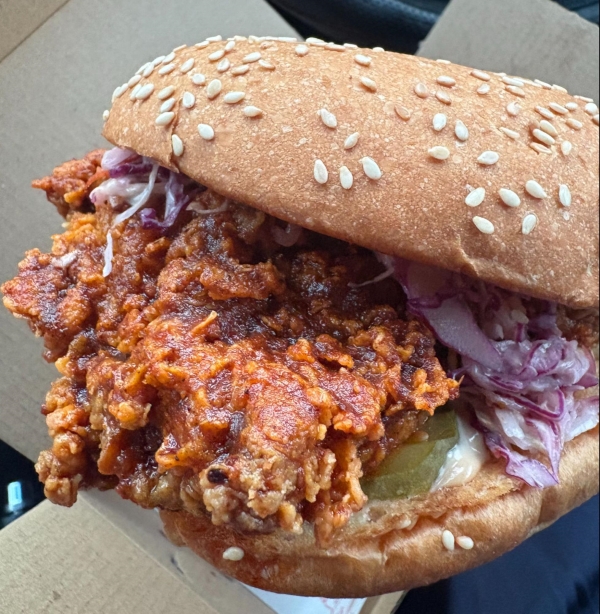
The Instagrammable cafe culture is huge here in Chiang Mai, and the other day I sat in a fancy little café sipping an iced latte and eating a padgaprao for THB144. Total. In Bangkok, I’d be lucky to find just a coffee for that price in a trendy spot these days.
Western Groceries are about the same in both cities. Rimping Supermarkets in Chiang Mai are like Villa Markets in Bangkok: imported cheeses, cereals, and sauces all at similar prices. You won’t find that you are missing anything at all.
For everything else, Thai market shopping is the norm here, we still have plenty of Lotus’s, Makro, and Big C for convenience, but the fresh markets are where it’s at and I go each Saturday to get a week’s worth of staples and veggies. I will fill my car, 4 or 5 shopping bags full of food for about THB500.
It saves me so much, I cook more, I get fewer deliveries, and I get to support more locals instead of big chains. It is just a habit that fits better into the lifestyle here.
Cost of Living Examples
Rent – 1-bed condo (central)
- Bangkok (central Sukhumvit/Thonglor): THB18,000–THB45,000+/mo for a modern 1-bed; luxury towers much higher. Lots of choice.
- Chiang Mai (Nimman/Old City): THB8,000–THB22,000/mo for a comfy 1-bed condo. Not much choice in condos as there are fewer.
Rent – 2-3 bed house / family home
- Bangkok (inner suburbs): THB30,000–THB100,000+ depending on area and compound. Less choice in town.
- Chiang Mai (suburbs or city edge): THB10,000–THB40,000. Many expats buy/rent houses with gardens for way less than in Bangkok. Thousands of compound choices.
Buying property / condo
- Bangkok (central): THB120,000–THB300,000+/sqm in popular districts.
- Chiang Mai: THB40,000–THB120,000/sqm depending on location.
Food – street / local
- Bangkok: street noodles and rice sets THB40–THB80; mall food court THB60–THB140.
- Chiang Mai: similar street prices, sometimes slightly cheaper THB35–THB70; more exciting choices than Bangkok.
Food – midrange restaurant
- Bangkok: THB200–THB400 per person.
- Chiang Mai: THB120–THB300 per person.
Daily coffee (stall vs café)
- Bangkok: local stall THB40–THB80, cafe THB60–THB140.
- Chiang Mai: local stall THB20–THB40, cafes THB40–THB90.
Groceries – supermarket basket (weekly, basic Western + Thai staples)
- Bangkok: THB800–THB2,000 depending on brand choices and imported items.
- Chiang Mai: THB700–THB1,700, local markets make it cheaper if you buy Thai produce.
Imported & specialty products
- Both cities are the same: imported cheese, wine, and specialty items are pricey in both Chiang Mai’s Tops and Rimping as well as Bangkok’s Villa Markets, Tops, and Gourmet Markets. But I do find that Chiang Mai has more boutique local products like cold cuts, cheeses, hot sauces, and things that save me money on imported stuff.
Transportation – ride-hailing (Grab / Bolt)
- Base prices are the same, but Chiang Mai is much smaller, so fares are lower, there are also no tolls in Chiang Mai, meaning a car to the airport from most parts of town is only a couple of hundred baht rather than the 400 to 600 baht you end up paying in Bangkok for an airport trip.
Transportation – owning a car
- Bangkok: owning a car means expensive parking – sometimes even at your own condo + traffic + tolls. It is usually unnecessary to own a car though.
- Chiang Mai: more people own cars as they are so practical for weekend escapes and getting around this great driving city; you’ll likely want a car and this might be a new expense for you but parking is easy and usually free or very cheap and there are no tollways around town.
Car rental (per day)
- Bangkok: THB800–THB2,000/day for standard compact; weekly/monthly deals lower cost.
- Chiang Mai: similar or slightly cheaper for long-term deals; week or month rentals common for weekend trips. Learn more about renting a car in Chiang Mai here.
Motorbike / scooter rental
- Bangkok: short-term THB200–THB350/day; long-term is cheaper.
- Chiang Mai: THB150–THB300/day; long-term monthly: THB2,500–THB4,000 – very common and handy especially if you live around the inner part of town where roads are narrow.
Domestic & international travel expenses
- Chiang Mai: domestic flights to Bangkok are usually THB1,000–THB2,000 each way.
- International: you’ll often need a connecting flight via Bangkok or a stop for many destinations. This adds time and cost. Bangkok’s Suvarnabhumi has many more direct international routes and better prices/choice on long-haul flights.
Electricity
- Bangkok: monthly apartment with AC on THB2,000–THB6,000+ depending on use.
- Chiang Mai: generally a little lower because nights are cooler and the cooler season is longer, but the government price for electricity is the same as Bangkok. I did find that while it is common in Bangkok for landlords to bump up the government price, no one gave me an inflated price when I was house hunting. I looked at around 15 places and all of them stated government rates.
Internet (home fiber)
- Bangkok and Chiang Mai are the same. You can transfer your account from your Bangkok home to your Chiang Mai home easily, they have all the same internet service providers: THB400–THB1,000/mo for decent fiber plans (100–300 Mbps).
Drinking in bars & nightlife
- Bangkok: cocktails THB180–THB400+, craft beer THB180–THB280, club entry higher.
- Chiang Mai: many bars are cheaper, cocktails THB120–THB300, local beer THB80–THB140; more low-cost options overall and lots of cool venues with very low cost drinks.
Entertainment & fun
- Chiang Mai: lots of cheap/free outdoor fun like hiking, waterfalls, temples, parks, biking; great for weekend escapes and nature lovers. Also lots of community spaces, free workshops, talks, and gatherings.
- Bangkok: paid experiences are what you usually find yourself doing, like pricey theatres, high-end bars, malls, paid classes and events. Expect to spend more on urban entertainment.
Healthcare & clinics
- Bangkok and Chiang Mai both have similar options as far as fancy international care, private clinics, public hospitals, and part public part private. The prices are very similar for healthcare but Bangkok has more options, see below for more healthcare info.
Coworking & coffee-shop workspaces
- Bangkok: lots of trendy coworking spaces THB300–THB1,200/day or ₿2,500–THB8,000/mo.
- Chiang Mai: because of the thriving digital nomad community here, there are lots of cheaper coworking options and many digital-nomad friendly cafés, monthly passes are often cheaper and many co-working spaces are free here as long as you buy a coffee. I like Weave Artisan Society, Fellowship Cafe & Co-Working, and Heartwork the Sharing Space.
Necessary income:
- Bangkok: to live comfortably in Bangkok, you will need to earn 50,000 to 70,000 THB (USD 1,400–2,000) to have some fun but live pretty modestly and be able to save just a bit for vacations. Ideally you are making closer to 100K to have a great life in Bangkok
- Chiang Mai: to live a nice little frugal but fun life in CNX, you can get by on less, earning 30,000 to 50,000 THB (USD 850–1,400) won’t devastate you. Ideally you are making closer to 70K to have a great life in Chiang Mai.
Healthcare and Hospitals
When I lived in Bangkok, I was spoiled for choice. Bumrungrad, Samitivej, and Bangkok Hospital are all world-class facilities with English-speaking specialists, cutting-edge facilities, and international accreditations. Perfect as long as you have good insurance.
Bangkok also has amazing public or semi-public hospitals that are incredibly affordable for great levels of care, like Camillian and Saint Louis Hospital. In Bangkok, instead of looking for a specific clinic, you have the luxury of one in every neighborhood, you simply put “medical clinic” into your google maps and the nearest one will probably work for simple requests and things like medical certificates for visas.
Chiang Mai doesn’t have quite the same range, so you have to travel a bit farther sometimes. But the hospitals here are still very good. Chiang Mai Ram and Bangkok Hospital Chiang Mai both feel modern and professional and these are the two most popular choices for expats here in an emergency. Most people I know do routine care here and, if something specialized comes up, they would likely fly to Bangkok. Insurance is important either way.
In Chiang Mai, you also have the options of public hospitals, private hospitals, and clinics. Public hospitals are affordable but may have longer waits and limited English support, while private hospitals offer faster service, modern facilities, and English-speaking staff. Clinics are convenient for everyday medical needs, prescriptions, and referrals.
Private hospitals in Chiang Mai include Bangkok Hospital Chiang Mai and Chiang Mai Ram Hospital & Health Centre, you can also look into Lanna Hospital or Rajavej Hospital.
The most renowned Chiang Mai public hospital is Maharaj Hospital (Suan Dok) in case you are paying out of pocket, this is a good choice in an emergency.
And for everyday prescriptions, ailments, and medical certificates, you have a choice of clinics like Health Care Medical Clinic (HCMC Health Care) or Loi Kroh Medical Clinic (Dr. Tawetchi).
Learn More:
Services for Expats
Bangkok makes paperwork easier sometimes because all the embassies and big relocation firms are there. There are districts where you can go to find dozens of translation service offices, notaries, accountants, lawyers, etc.
Chiang Mai feels smaller, but in some ways more supportive. Everyone is connected through Facebook groups: housing, parenting, hiking, visa tips. I found my townhouse through one of these groups. For everyday help like lawyers, accountants, visa agents—there’s always someone who “knows a guy.”
Education for Families
I don’t have kids, but plenty of my friends do, and when it comes to schooling, the difference between Bangkok and Chiang Mai is massive.
In Bangkok, there are dozens of well-established options following British, American, or IB curriculums, often with state-of-the-art facilities that rival small universities, and price tags to match.
Annual tuition can easily run from THB400,000 up to THB900,000 (and sometimes more with lunch, transport, and activities). The upside is access to a wide range of advanced programs, language offerings, and extracurriculars. The downside: big campuses, big class sizes, and competitive admissions.
In Chiang Mai, the scene feels more personal and community-driven. Schools are smaller, often surrounded by greenery, and families tend to know each other well. Tuition is noticeably lower, usually THB250,000 to THB500,000 per year, depending on the grade and program. The environment leans more holistic, with an emphasis on outdoor learning, creativity, and a slower pace of life. Kids here are more likely to spend weekends hiking, horseback riding, or doing art workshops than wandering through a shopping mall.
Top International Schools in Bangkok
- Bangkok Patana School – British curriculum and IB Diploma.
Fees: THB550,000–THB900,000 per year. - NIST International School – IB curriculum from Early Years to Diploma.
Fees: THB600,000–THB900,000 per year.
Harrow International School Bangkok – British curriculum, large boarding option.
Fees: THB500,000–THB850,000 per year. - Shrewsbury International School – British curriculum, riverside campus.
Fees: THB450,000–THB850,000 per year. - Bangkok Prep (Bangkok International Preparatory & Secondary School) – British curriculum, Thonglor and Sukhumvit campuses.
Fees: THB400,000–THB750,000 per year. - International School Bangkok (ISB) – American and IB curriculum, large suburban campus in Nichada Thani.
Fees: THB600,000–THB900,000 per year.
Top International Schools in Chiang Mai
- Prem Tinsulanonda International School – IB World School (Primary to Diploma). Known for its outdoor campus and arts programs.
Fees: THB400,000–THB600,000 per year. - Lanna International School Thailand – British curriculum, diverse student body.
Fees: THB250,000–THB450,000 per year. - Nakornpayap International School (NIS) – American-style curriculum, long-established community school.
Fees: THB250,000–THB400,000 per year. - Chiang Mai International School (CMIS) – American curriculum, small classes and strong academic reputation.
Fees: THB300,000–THB450,000 per year. - American Pacific International School (APIS) – American curriculum and IB Diploma; day and boarding options.
Fees: THB350,000–THB500,000 per year. - Panyaden International School – British and IB programs with an eco-friendly, Buddhist-inspired philosophy.
Fees: THB250,000–THB400,000 per year.
If you want big campuses, elite networks, and global programs, Bangkok delivers, at a cost. If you prefer smaller schools, greener spaces, and a family-style community, Chiang Mai wins.
Work and Business Opportunities
I moved to Chiang Mai for a job, but the reality is, most people you meet here fall into a few clear categories: tourists soaking up the old city charm, teachers, retirees, and digital nomads running businesses from their laptops. The city caters to this crowd, fast internet, buzzing coworking spaces and affordable living costs make remote work not just possible, but actually enjoyable. Weekends can be spent in cafés, hiking, or exploring waterfalls, all without breaking the bank.
Bangkok, on the other hand, is still the corporate hub. If you’re chasing careers in finance, tech, marketing, or multinational companies, it’s the city to be. Opportunities are abundant, networking is easier, and salaries reflect the higher cost of living, but the pace, stress, and expense are on a whole other level.
In short: Chiang Mai is great for flexible, remote, or creative work with a slower pace and lower costs. Bangkok is the city for career climbers chasing high-paying corporate roles and big-city perks.
Transportation and Mobility
In Bangkok, public transport is efficient but only covers part of the city. And while traffic is notorious, you can survive without owning a car.
In Bangkok, I rarely needed a car. In fact, I bought one during covid and then sold it once the traffic returned. I find having a car in Bangkok a bigger burden than it is worth. The BTS, MRT, and Grab can handle almost everything. I also love scooting around Bangkok traffic on my little Yamaha Fino.
In Chiang Mai, there’s no BTS. Most expats drive cars or scooters. Songthaews (red trucks) are the main local shared taxis. Here, everyone has wheels. Teachers and expats often drive cars and scooters because the city is spread out and the weather can be unpredictable but ducking to the local 7/11 is easier on a bike.
I got a car as soon as I arrived and I can’t imagine living here without one. I would be much more miserable if I could not jump in the car and pop across town any time I want, I can get to the mountains, go shopping for my house, and I am not restricted by the weather. When it rains, floods, or the smoke rolls in during the burning season, you’ll be glad you have a car.
The highways here if you live outside of the small inner city square (as most of us expats do) are really scary, dangerous, and the road quality is not great. Motorcycles are not a good choice as your only transportation here.
Culture and Community
In Bangkok, I could almost blend in. People assumed I lived there, and in my neighborhood I felt like a local.
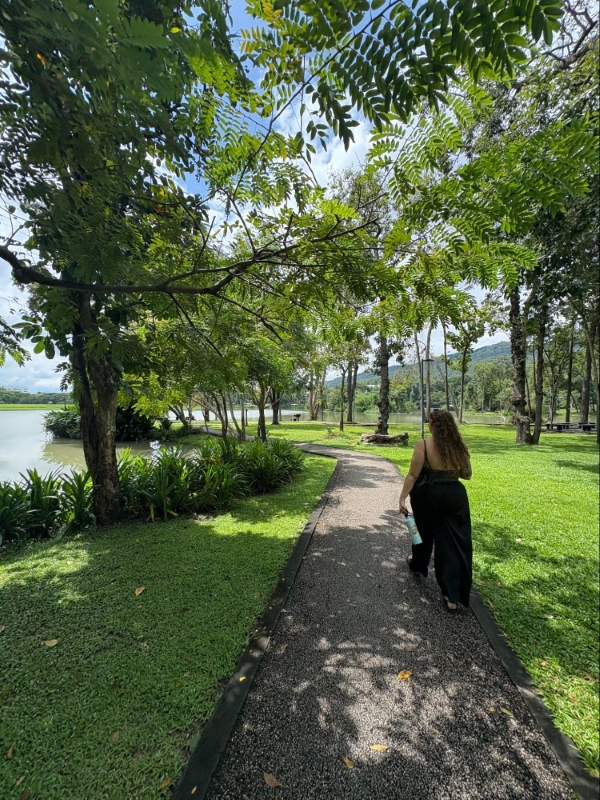
In Chiang Mai, people often assume I’m a tourist. Sometimes it feels like everyone expects me to leave in a few weeks. But the expat community itself is warm and connected. There are hiking clubs, yoga retreats, writing groups, and plenty of opportunities to meet the same faces again and again.
Bangkok has everything: embassies, foreign chambers of commerce, global food festivals, and thousands of expats from everywhere. You can blend in and feel like part of a global city.
Chiang Mai is more intimate. You’ll run into the same people at markets, cafés, or hiking groups. The vibe is community-based where writers’ circles, yoga retreats, art fairs, and expat potlucks are common.
Where to Live in Chiang Mai
Chiang Mai is often described as a small city with many personalities, and each area has its own rhythm, community, and flavor.
Learn More: The Complete Guide to Renting in Chiang Mai
The Old City, enclosed by the square moat and remnants of ancient walls, is the heart of tourism. The narrow lanes are filled with guesthouses, coffee shops, yoga studios, and vegetarian cafés catering to backpackers and digital nomads. Streets like Rachadamnoen and Moon Muang are busy day and night, especially around the Sunday Walking Street Market.
Northern Thai restaurants such as Krua Phech Doi Ngam remain local favorites, while small smoothie stalls and falafel wraps keep the area firmly on the “hippie traveler” map. Living here means being surrounded by temples and markets but also accepting the noise, crowds, and constant movement of visitors.
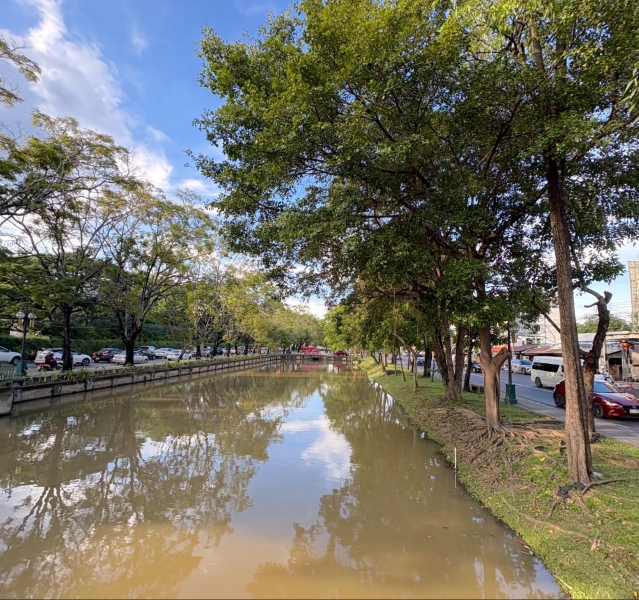
To the northwest, the area around Nimmanhaemin and Suthep feels like another world entirely. This is the trendy, café-lined district near Chiang Mai University where most of the city’s younger expats, students, and creative workers hang out.
Nimman’s side streets are packed with boutique hotels, concept cafés, and international restaurants. A noticeable number of Japanese and Korean businesses cluster here like the famous KOBQ for Korean barbecue, Mu’s Katsu for Japanese curry, and SUMI to SUSHI for the best sashimi in the city.
It’s also home to the city’s most developed coworking scene, with at least 15 in that corner of the city. The convenience and walkability come at a price though; Nimman is one of the most expensive areas to rent and often choked with traffic during rush hour.
Heading east of the Old City, Chang Klan and the Night Bazaar area are shaped by tourism. Hotels, massage shops, and souvenir stalls dominate, but tucked between them are solid restaurants, cute cafes along the Ping River, and great little bars like Namton’s House Bar. This area suits people who want to be close to the action and nightlife without being inside the Old City itself.
Nights out at cool and cheap bars like Crossroad in Chiang Mai watching rocking live bands help me not miss Bangkok nightlife. (Photo Phoebe Storm)
Southwest, around the airport, Suthep, Mae Hia and Pa Daet, and in the south, Haiya and Chang Khlan (closer to town) attract long-term expats and families looking for quiet, space, and easy access to international schools. The streets here are lined with moobans (gated communities) and larger houses with gardens. The trade-off for space and peace is that you’ll need a car for sure.
Farther out, districts such as Hang Dong, Mae Rim, and Doi Saket offer a semi-rural setting popular with retirees or anyone wanting mountain views and large properties. The air is fresher, the roads quieter, but the drive into town is longer.
Learn More:
- The Big On Nut Guide: Living in Bangkok’s Fastest Growing Neighbourhood
- The Big Phrom Phong Guide: Living in the Heart of Sukhumvit
- Underrated Neighborhoods in Bangkok
Safety and Quality of Life
Both cities are safe. Bangkok’s main dangers are traffic and tourist scams. Chiang Mai is quieter, but the burning season (roughly February to April) is the big question mark for me. Some say it’s bearable with an air purifier; others say it’s the worst months of their lives. I haven’t gone through it yet, I guess I’ll find out.
Learn More:
- Is Chiang Mai Safe? What You Need to Know Before You Go
- Is Bangkok Safe? What You Need to Know Before You Go
Things to Do
When it comes to weekends, Bangkok and Chiang Mai offer completely different playgrounds for expats, same country, totally different vibe.
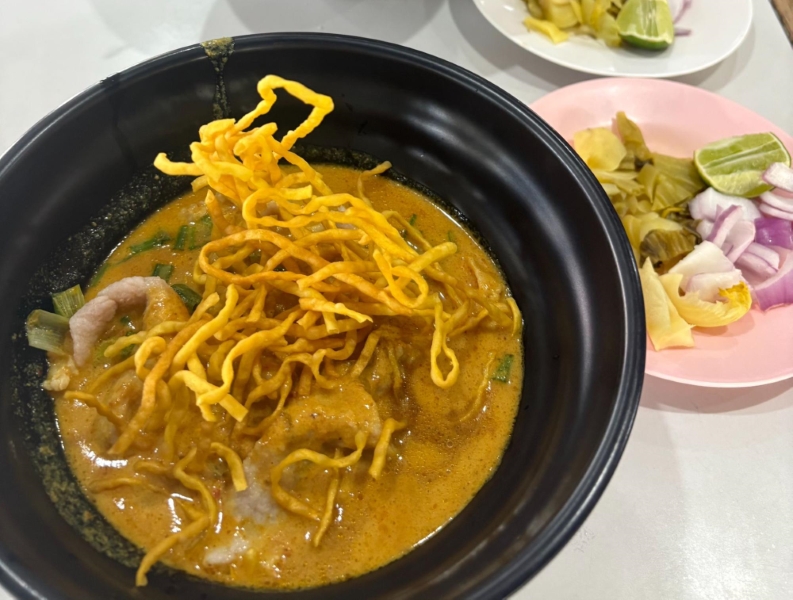
In Bangkok, weekends are for indulgence, convenience, and choice. It’s a city built for going out, whether that means:
- Dining out – endless restaurants, rooftop bars, and brunch spots serving every cuisine under the sun.
- Shopping – from Chatuchak Market chaos to high-end malls like EmQuartier, Siam Paragon, and ICONSIAM.
- Nightlife – speakeasies, sky bars, live music venues, and those infamous nightclubs that swallow your Sunday.
- Wellness & workouts – boutique gyms, reformer pilates, spin studios, and spa chains on every corner.
- Cultural breaks – exhibitions at Bangkok Art & Culture Centre, independent film screenings, and creative markets.
- Quick escapes – a 2 or 3-hour drive or train to Hua Hin, Khaoyai, or Koh Samet for a beach weekend.
- Social life – professional networking events, international meetups, and embassy parties if you’re into that scene.
Bangkok weekends are easy to fill but often come with a price tag — and a hangover. You pay for access, comfort, and convenience, but it’s hard to beat the energy.
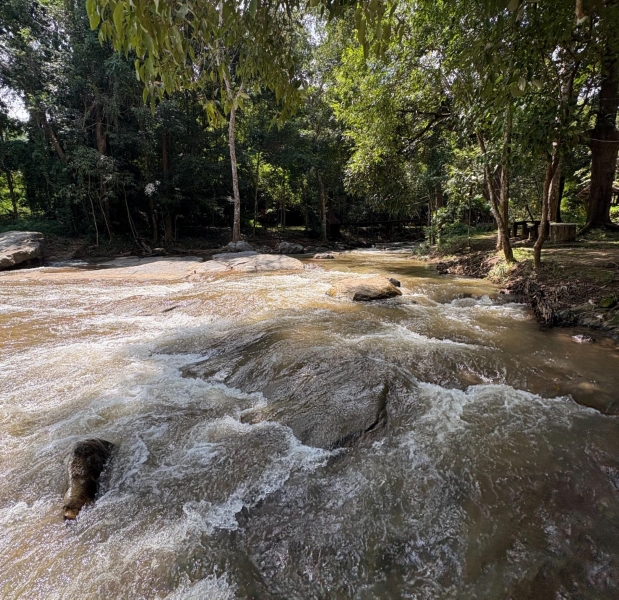
Chiang Mai, on the other hand, is all about space, air, and nature. Weekends here are slower, outdoorsy, and community-driven:
- Café hopping – hundreds of indie coffee spots with mountain views and homemade cakes.
- Nature escapes – hiking Doi Suthep, swimming at Bua Thong Waterfall, or chasing sunsets from mountain viewpoints.
- Markets – Saturday Walking Street, Sunday Market, and neighborhood farmer’s markets full of handmade goods and cheap eats.
- Workshops & hobbies – pottery, painting, yoga retreats, cooking classes, and local crafts are a big part of Chiang Mai life.
- Fitness & outdoor sports – cycling, rock climbing, Muay Thai gyms, and forest trail running instead of treadmills.
- Social life – live music bars, digital nomad meetups, open mics, art pop-ups, and outdoor movie nights.
- Weekend getaways – Pai, Chiang Rai, or Mae Kampong for fresh air and quiet cabin stays.
Bangkok is for the social expat who thrives on city buzz, restaurants, parties, and convenience. Chiang Mai is for the laid-back expat who likes slow mornings, good coffee, and green weekends.
Facebook might be a dying platform in some parts of the world, but in Thailand, it is essential for events, local businesses, and local knowledge. Join Facebook groups to know what’s happening in your city. When I moved to Chiang Mai, I found these ones helpful:
Pros and Cons
TLDR? Here is a quick summary of my overhauling list of pros and cons for living in both cities.
Pros of Bangkok
- Dynamic, global city with endless food, nightlife, and entertainment options.
- Best for corporate jobs in finance, tech, or marketing with higher salaries.
- Excellent international schools and hospitals with world-class facilities.
- Efficient public transport (BTS, MRT) and no need to own a car.
- Cosmopolitan lifestyle with strong expat networks and embassy access.
- Easy access to domestic and international flights.
Cons of Bangkok
- Higher cost of living (rent, dining, nightlife, and schooling).
- Heavy traffic, pollution, and urban stress.
- Bureaucracy at Chaengwattana Immigration is notoriously slow.
- Smaller living spaces for higher rent.
- Harder to find quiet or nature without leaving the city.
Pros of Chiang Mai
- Lower cost of living, bigger homes, cheaper dining, and café culture.
- Friendly immigration offices and smoother bureaucracy.
- Strong digital nomad and remote work community; fast internet and affordable coworking spaces.
- Green surroundings with easy access to nature, hikes, and weekend getaways.
- Tight-knit expat community and more relaxed lifestyle.
- Great for families and retirees, smaller schools, lower tuition, and community feel.
Cons of Chiang Mai
- Limited corporate job opportunities; most work is teaching, freelance, or remote.
- You’ll likely need a car for convenience, limited public transport.
- Fewer international hospitals and specialist medical services.
- Burning season (Feb–Apr) brings heavy air pollution.
- Smaller social scene; nightlife and networking options more subdued.
- Feels transient, locals often assume foreigners are short-term visitors.
Which City Should You Choose?
- If you’re retiring and want peace and low costs: Chiang Mai.
- If you’re a digital nomad: also Chiang Mai, unless you thrive on big-city energy.
- If you have kids: both can work, Bangkok for top schools, Chiang Mai for space and community.
- If you’re a professional chasing a corporate career: Bangkok.
- If you value diversity in art, culture, and community: Bangkok
FAQs
Is Bangkok more expensive than Chiang Mai?
Yes, on average Bangkok costs 30–50% more, especially for housing and dining.
Which is safer for expats?
Both are safe as far as crime is concerned, though Chiang Mai’s air pollution season is a health concern.
Can families with kids settle in Chiang Mai?
Absolutely, many do. Schools are smaller but high quality, and kids enjoy more space and nature.
Is healthcare as good in Chiang Mai as Bangkok?
It’s good for routine care, but Bangkok has more specialists. Bangkok Hospital has a branch in Chiang Mai and is the most popular choice for insured expats.
Do digital nomads prefer Chiang Mai or Bangkok?
Chiang Mai remains a favorite for nomads thanks to affordable housing, coworking spaces, and lifestyle. Though some nomads need Bangkok’s global connections.
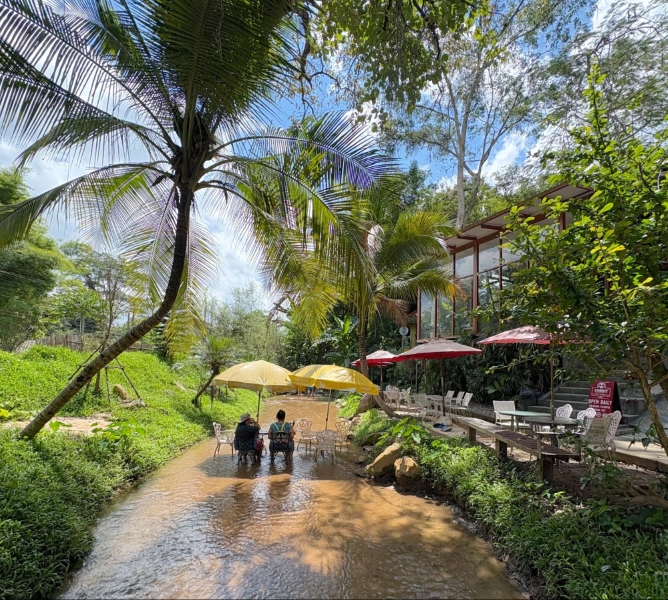
Which One Is Better: Chiang Mai or Bangkok?
After living in both, I can say neither city is “better”, they’re just different. Bangkok is exciting but exhausting. Chiang Mai feels calmer, greener, and more personal. I think it takes a long time to get to know either city well.
It can be hard to find your place as a foreigner in a new city in Thailand. I believe in giving new opportunities a chance. I also believe that there is no shame in changing your mind. If a job comes up that gives you the chance to move from Bangkok to Chiang Mai or the other way round, I would recommend you go for it. You never know till you try. Your best life might just be 700 kilometers away.
If you’re on the fence, spend a few months in both. I never thought I’d trade Bangkok’s skyline for Chiang Mai’s mountains, but now when I wake up and see the hills on the horizon… to be honest, I’m still not sure that I made the right choice, but Bangkok will always be there for me.
The only thing I really miss? Krispy Kreme. They don’t have it here, which is why you see passengers arriving from Bangkok holding those signature white boxes like treasure.




